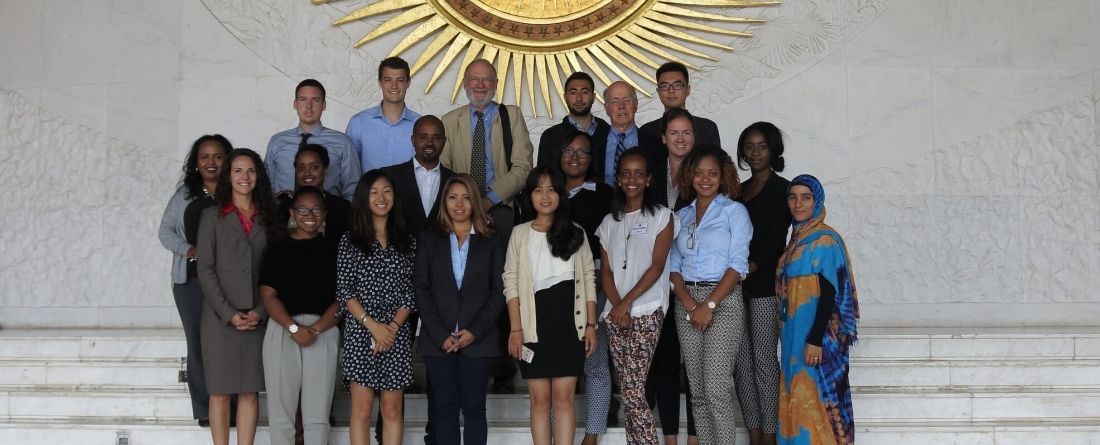
This past school year, the University of Maryland School of Public Policy took students to India, Peru, Indonesia and Morocco. And during the summer, for the first time, the School of Public Policy took students to Ethiopia for a two-week study abroad course.
The course allowed students to look at the political economy of Africa by using Ethiopia as a case study. During the trip, students were able to participate in service learning opportunities organized by local NGOs; visit and have conversations with members of parliament on Ethiopian federalism; and listen to lectures at the World Bank, the U.S. Embassy in Addis Ababa, the International Financial Corporation of the World Bank, the Ethiopian Chamber of Commerce, and the Public-Private Partnership Forum. Students also attended a day-long summit with local university students and lectures with Ethiopian scholars and practitioners.
My time in Ethiopia gave me a much more complex view of Ethiopia and the continent in general. Ethiopia has so many different elements, that it cannot be pinned down by a simplistic image like the one many Americans have.Connor McHale SPP Student
International Development and International Security and Finance Student Connor McHale was one of the participants on the Ethiopia study abroad trip. “This trip gave me the opportunity to leave the western world for the first time,” McHale says. “I want to work in development and Ethiopia is one of the fastest growing economies in the world, and is very focused on development. It also has many challenges. That makes it an excellent case study.”
“My time in Ethiopia gave me a much more complex view of Ethiopia and the continent in general. Ethiopia has so many different elements, that it cannot be pinned down by a simplistic image like the one many Americans have,” he says. “There are more than 80 ethnicities, each with a unique cultural identity and language. There is dancing and art from each culture that greatly differs from anything I have ever seen before. While many people you see look to be very poor, they also look happy.”
Meaza Getachew, a government and politics student minoring in international development and conflict management, was another student who travelled to Ethiopia. “I was actually born in Ethiopia and have traveled back almost every other year,” she says. “I was looking for a different perspective that related to the classes I was taking at UMD.”
Getachew adds that she particularly enjoyed interacting with other college students at the Addis Ababa University. “It gave both parties a chance to learn more about our respective countries and cultures, but also let us take what we had learned so far during the trip and see in what ways Ethiopia’s social, economic and political environment affects college students.”
“As an Ethiopian-American student, the best part for me was taking what I already knew and experienced about Ethiopia and building upon that foundation to gain even more experiences in a country I was familiar with,” Meaza says. “This time around allowed me to get more out of the experience since we got to visit organizations that play critical roles in international relations.”
